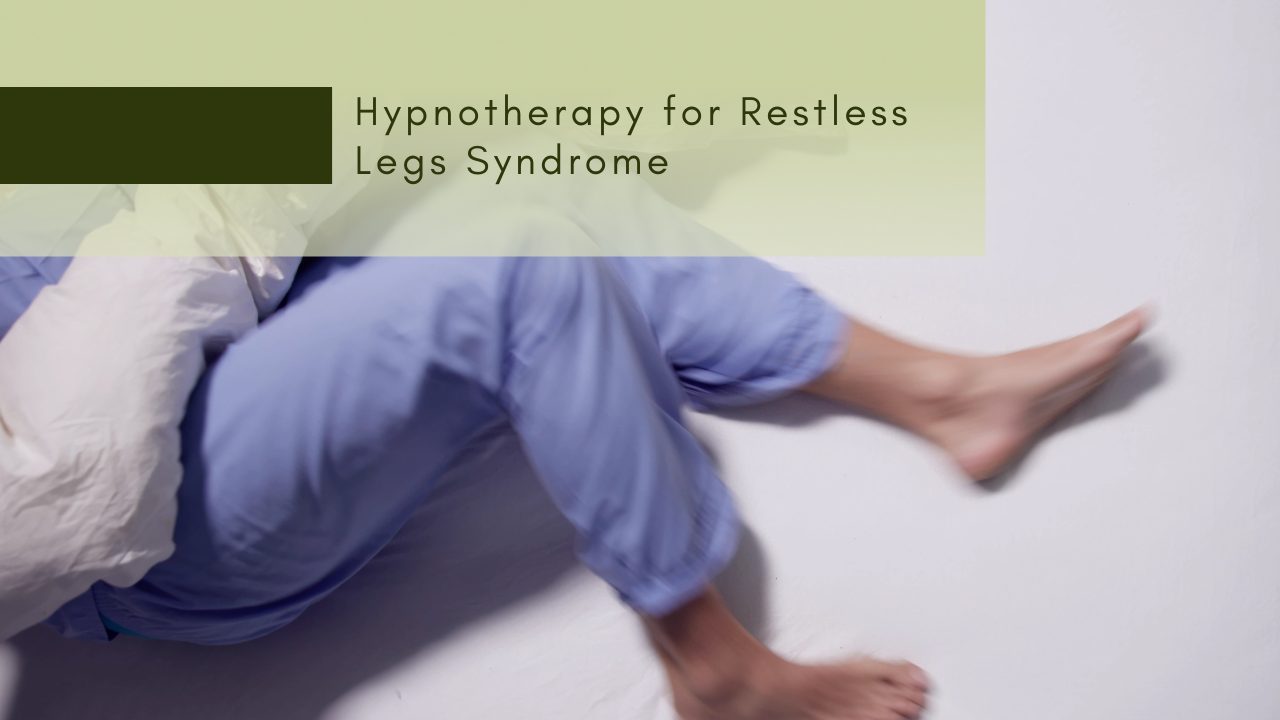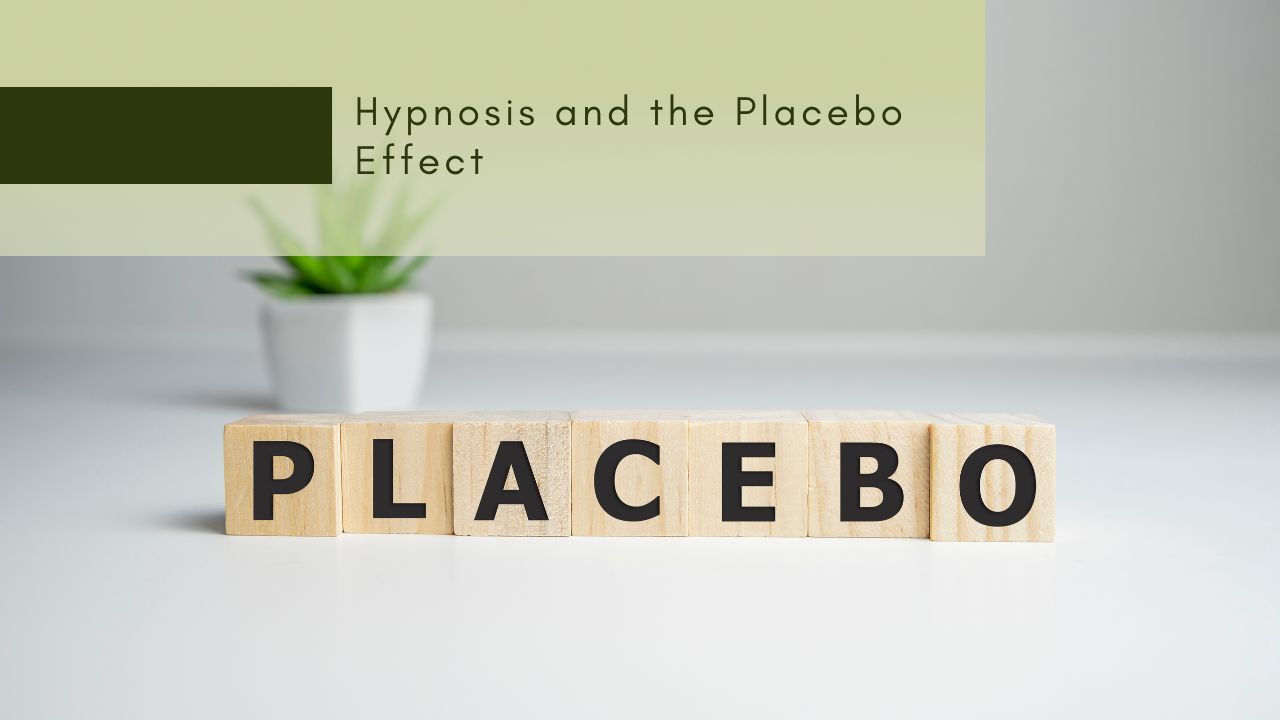Hypnotherapy may be considered as a complementary or supportive approach to managing certain aspects associated with RLS, in this article we will discuss how we can use hypnotherapy for restless leg syndrome.
The Life-Altering effects of Living with Restless Legs Syndrome (RLS)
Restless Legs Syndrome (RLS), also known as Willis-Ekbom Disease, is a neurological disorder characterized by an irresistible urge to move the legs, often accompanied by uncomfortable sensations. While RLS itself is not life-threatening, its chronic nature and the associated symptoms can have significant life-altering effects for individuals who live with it. Here are some of the notable impacts of living with Restless Legs Syndrome:
Sleep Disturbances: RLS symptoms are often most pronounced during periods of rest or inactivity, particularly at night. This can lead to difficulty falling asleep and staying asleep, resulting in chronic sleep disturbances. Insufficient sleep can contribute to fatigue, mood changes, and impaired cognitive function.
Daytime Fatigue and Impaired Functioning: Persistent sleep disruptions from RLS can lead to daytime fatigue and decreased alertness. Individuals may experience difficulties concentrating, memory impairment, and challenges in performing daily tasks, which can significantly impact overall functioning.
Impact on Quality of Life: RLS can substantially affect an individual’s quality of life. The constant urge to move the legs and the discomfort associated with the condition can lead to increased stress, anxiety, and frustration. Aspects of daily life, including work, social activities, and relationships, may be compromised.
Mood Disorders: Living with RLS has been associated with an increased risk of mood disorders, including depression and anxiety. The persistent nature of the symptoms and the impact on sleep can contribute to emotional distress and affect mental well-being.
Limitation of Activities: RLS symptoms can limit an individual’s ability to engage in activities that require prolonged periods of sitting or lying down, such as attending movies, long flights, or car rides. This limitation can affect social interactions and participation in certain events.
Challenges in Travel: Traveling, especially on long flights or car journeys, can be particularly challenging for individuals with RLS. The need to move the legs regularly may interfere with prolonged periods of sitting, making travel uncomfortable and stressful.
Impact on Relationships: RLS symptoms can disrupt sleep patterns, leading to difficulties in sharing a bed with a partner. The sleep disturbances and associated irritability can strain relationships over time.
Employment Challenges: Fatigue, difficulty concentrating, and impaired cognitive function due to RLS can impact job performance and productivity. Individuals may face challenges in maintaining regular work hours and meeting job demands.
Risk of Injury: The urge to move the legs can be strong, and individuals with severe RLS may engage in excessive movement to alleviate discomfort. This movement can sometimes lead to injuries, including falls, especially if it occurs during the night when visibility is reduced.
Challenges in Diagnosis and Management: RLS is not always easily diagnosed, and finding effective management strategies can be a complex process. This can result in frustration and delays in receiving appropriate treatment.
Exploring Hypnotherapy as a Solution for Restless Legs Syndrome
Hypnotherapy, which involves guided relaxation, focused attention, and suggestion, has been explored for various health conditions, including some related to sleep and relaxation. However, studies relating to the effectiveness of hypnotherapy for Restless leg Syndrome have been limited and are therefore not well established, suggesting that more research is needed.
Digging Deeper: The Power of Hypnotherapy in Easing Restless Legs Syndrome
Hypnotherapy may be considered as a complementary or supportive approach to managing certain aspects associated with RLS. The following are some ways in which hypnotherapy might be explored in relation to RLS:
- Stress Reduction: Hypnotherapy can be utilised to induce a state of relaxation, reduce stress, and promote overall mental well-being. Stress reduction may indirectly contribute to alleviating RLS symptoms, as stress can exacerbate various health conditions, including those related to sleep.
- Improving Sleep Quality: Hypnotherapy sessions may be designed to improve sleep quality by promoting relaxation and reducing anxiety. Although hypnotherapy may not directly address the physiological aspects of RLS, better sleep quality may have positive effects on overall well-being.
- Mind-Body Connection: Hypnotherapy often involves exploring the mind-body connection. It may help individuals with RLS become more aware of their sensations and develop strategies to manage discomfort through mental focus and relaxation techniques.
- Enhancing Coping Mechanisms: Individuals with RLS may experience frustration and anxiety due to the symptoms. Hypnotherapy may assist in enhancing coping mechanisms, promoting a more positive mindset, and reducing the impact of psychological stressors associated with RLS.
- Individualised Approach: Hypnotherapy sessions can be tailored to the individual’s specific experiences and needs. The focus may include addressing psychological aspects such as anxiety or discomfort related to RLS, rather than directly modifying the physiological components of the disorder.
It’s important to note that the effectiveness of hypnotherapy can vary from person to person, and responses may be influenced by factors such as individual differences, the severity of RLS symptoms, and overall health.
Pre-Hypnotherapy: How to Get Ready for a Restless Leg Syndrome Session
If you are considering hypnotherapy as a complementary approach to managing Restless Legs Syndrome (RLS), there are several steps you can take to prepare for a session. Keep in mind that while hypnotherapy may offer relaxation benefits, it’s important to approach it as part of a comprehensive management plan that may include other evidence-based treatments. Here’s how you can get ready for a Restless Legs Syndrome hypnotherapy session:
Consult with Healthcare Professionals: Before exploring hypnotherapy, consult with healthcare professionals, especially those specializing in sleep disorders or neurology. Ensure that hypnotherapy is considered safe and appropriate for your specific condition.
- Set Realistic Expectations: Understand that while hypnotherapy may offer relaxation benefits, it may not directly address the physiological aspects of RLS. Have realistic expectations and consider hypnotherapy as part of a holistic approach to managing symptoms.
- Communicate Your Goals and Concerns: Clearly communicate your goals for the hypnotherapy sessions and any specific concerns related to RLS. Discuss your symptoms, triggers, and any challenges you may be facing. This information will help the hypnotherapist tailor the sessions to your needs.
- Discuss the Nature of the Sessions: Have a conversation with the hypnotherapist about the nature of the sessions. Understand the techniques that will be used, the duration of the sessions, and how the hypnotherapist plans to address RLS-related issues.
- Prepare a Comfortable Environment: Choose a quiet and comfortable environment for the hypnotherapy sessions. Minimise distractions and create a relaxing atmosphere. Consider factors such as lighting, temperature, and comfortable seating.
- Wear Comfortable Clothing: Dress comfortably for the sessions. This can contribute to your overall sense of relaxation and help you feel at ease during the hypnotherapy process.
- Be Open-Minded and Relaxed: Approach hypnotherapy with an open mind and a willingness to relax. The success of hypnotherapy often depends on the individual’s ability to enter a state of focused attention and receptivity.
- Practice Relaxation Techniques: Practice relaxation techniques on your own, such as deep breathing or progressive muscle relaxation. These techniques can complement the relaxation goals of hypnotherapy and help you enter a calm state.
- Follow Pre-Session Instructions: If the hypnotherapist provides any specific instructions to follow before the session, such as avoiding caffeine or engaging in a particular activity, be sure to adhere to those recommendations.
- Keep an Open Line of Communication: Throughout the hypnotherapy sessions, maintain open communication with the hypnotherapist. Provide feedback on your experiences, and don’t hesitate to express any concerns or questions that may arise.
Remember that individual responses to hypnotherapy can vary, and it may take multiple sessions to observe potential benefits. Additionally, hypnotherapy is most effective when integrated into a comprehensive management plan that may include other treatments recommended by healthcare professionals.
Securing the Best Hypnotherapist for Effective Restless Legs Syndrome Relief
- Choose a Qualified Hypnotherapist: Select a qualified and experienced hypnotherapist who is knowledgeable about working with individuals with sleep-related issues or neurological conditions. Check their credentials, experience, and any relevant certifications. It is desirable for the hypnotherapist to work in coordination with your medical providers.
- Interview the hypnotherapist: Check that you are comfortable with the approach and style offered by the hypnotherapist before signing up with them. Development of a good rapport with your hypnotherapist is essential to the successful outcome of the sessions.




